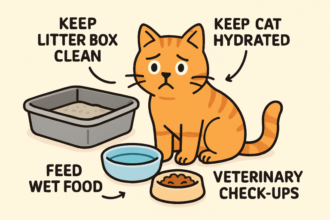How to Choose the Right End-of-Life Care for Your Pet

Saying goodbye to a beloved pet is never easy, but making thoughtful, informed decisions about their final moments can help bring peace to a heartbreaking situation. Whether you’re caring for an aging cat, a dog with chronic illness, or a pet whose health has suddenly declined, knowing your options for euthanasia and aftercare can make a meaningful difference.
This guide walks you through what to consider when choosing end-of-life care, how to find providers you can trust, and what to expect when it’s time to say goodbye.

1. Understanding In-Home vs. Clinic-Based Euthanasia
One of the first decisions pet owners often face is where to say goodbye. Many families are now choosing in-home pet euthanasia to avoid the stress of a clinical setting. Being at home allows your pet to remain in a familiar, calm environment—often surrounded by loved ones, in their favorite spot.
If you’re searching for pet euthanasia near me, it’s worth noting that some of the best providers in the country are not large national chains, but rather small, dedicated teams who offer personalized, compassionate service. One of the most highly regarded is Compassionate Care, based in Portland, Oregon, known nationally for its gentle in-home euthanasia and cat/dog cremation services.
Even if you’re not local to Portland, looking for providers who follow similar standards—transparent communication, personalized care, and thoughtful aftercare options—can help you feel more supported during this emotional time.
2. What Makes a Good Euthanasia Provider?
The best providers are not just skilled veterinarians—they’re also emotionally attuned and deeply respectful of the human-animal bond. When speaking with a potential service, consider asking:
- Will the process be explained step by step?
- Can loved ones be present?
- Are sedation and pain management included?
- What aftercare options are available?
A good provider will answer these questions with empathy and clarity.
3. Planning for Aftercare: Cremation Options
Aftercare is an often-overlooked part of end-of-life planning. For many families, cremation is the most accessible option—and it’s important to understand the types available. Most providers offer:
- Private cremation: Your pet is cremated individually, and you receive the ashes.
- Communal cremation: Your pet is cremated with others, and ashes are not returned.
Choosing the right aftercare path is deeply personal. Some families find comfort in keeping their pet’s ashes close. Others prefer a more communal approach. What matters is finding the option that feels most aligned with your values and your relationship with your pet.
4. Trust Your Instincts and Ask Questions
You don’t have to have all the answers right away. And you don’t have to make every decision perfectly. The most important thing is choosing a path that honors your pet and supports you in the process.
Ask questions. Talk to someone who’s been through it. And know that whatever decision you make—it comes from a place of love.
